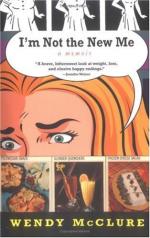Another place where he became at home and was much appreciated was in the post-office at the Capitol. “During the Christmas holidays,” says Ben: Perley Poore, “Mr. Lincoln found his way into the small room used as the post-office of the House, where a few jovial raconteurs used to meet almost every morning, after the mail had been distributed into the members’ boxes, to exchange such new stories as any of them might have acquired since they had last met. After modestly standing at the door for several days, Mr. Lincoln was reminded of a story, and by New Year’s he was recognized as the champion story-teller of the Capitol. His favorite seat was at the left of the open fireplace, tilted back in his chair, with his long legs reaching over to the chimney jamb. He never told a story twice, but appeared to have an endless repertoire of them always ready, like the successive charges in a magazine gun, and always pertinently adapted to some passing event. It was refreshing to us correspondents, compelled as we were to listen to so much that was prosy and tedious, to hear this bright specimen of Western genius tell his inimitable stories, especially his reminiscences of the Black Hawk War.”
[Illustration: ORLANDO B. FICKLIN, COLLEAGUE OF LINCOLN’S IN CONGRESS.
Ficklin was a Kentuckian who settled in Illinois in 1830. He served four terms in the state legislature, four terms in Congress, and filled many important posts in the Democratic party, of which he was a leader. He died in 1885.]
LINCOLN’S WORK IN THE THIRTIETH CONGRESS.
But Lincoln had gone to Washington for work, and he at once interested himself in the Whig organization formed to elect the officers of the House. There was only a small Whig majority, and it took skill and energy to keep the offices in the party. Lincoln’s share in achieving this result was generally recognized. As late as 1860, twelve years after the struggle, Robert C. Winthrop of Massachusetts, who was elected speaker, said in a speech in Boston wherein he discussed Lincoln’s nomination to the Presidency: “You will be sure that I remember him with interest, if I may be allowed to remind you that he helped to make me the speaker of the Thirtieth Congress, when the vote was a very close and strongly contested vote.”




